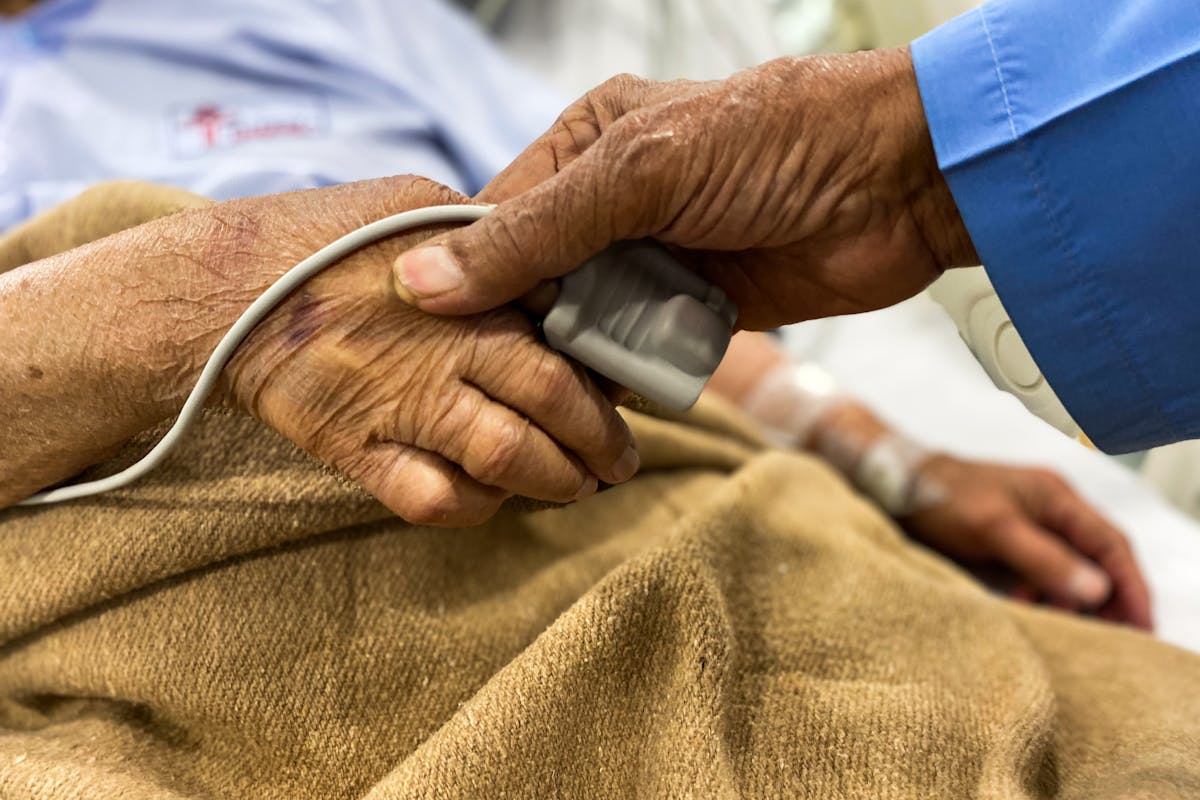- Explore individualized care plans focusing on patient comfort, emotional support, and honoring personal wishes to enhance quality of life.
- Implement pain management techniques through medication, physical therapy, and alternative treatments to address patient pain and discomfort effectively.
- Engage in open, honest communication, offering empathy and understanding, allowing patients to express fears, concerns, and end-of-life wishes.
- Providing emotional and spiritual support through counseling, chaplain services, and family support, ensuring psychological well-being and peace.
Navigating the delicate process of end-of-life care is inherently complex, demanding a comprehensive approach to patient well-being beyond mere medical management. Central to this multifaceted strategy are the comfort measures meant to provide solace, dignity, and tranquility to individuals reaching the end of their life’s journey. This article illuminates how caregivers can enhance the end-of-life experience through personalized, compassionate measures that address comfort’s physical, emotional, spiritual, and environmental dimensions.

Understanding Comfort Measures
Comfort measures in end-of-life care encapsulate a wide range of interventions designed to alleviate distress and enhance the quality of life for terminally ill patients. These measures hold immeasurable importance, as they represent the core of palliative care philosophy, focusing on the patient’s needs rather than just managing symptoms.
Definition and Importance
Comfort measures encompass a broad spectrum of care aimed at promoting comfort in patients whose goals of care have shifted from curative to comfort-focused. At this stage, the principal aim is to reduce suffering and enhance the patient’s remaining days with respect, empathy, and individualized attention.
The Impact of Comfort
The value of comfort measures cannot be overstated. They contribute significantly to a patient’s overall well-being, addressing not only their physical pain but also the psychological, social, and existential distress often associated with end-of-life stages. Caregivers facilitate a transition that respects the patient’s dignity and wishes by ensuring comfort.
Types of Comfort Measures
There are several comfort measures, each crucial in its own right to the overall end-of-life care experience.
Physical Comfort Measures
Effective physical comfort measures are the cornerstones of patient care, ensuring that pain is appropriately managed, symptoms are well-controlled, and the patient’s mobility is as unrestricted as possible.
Emotional Support
This form of support recognizes the significant role of the emotional well-being of the patient and their loved ones. It involves methods that allow the expression and management of emotions, promoting peace and reducing distress.
Spiritual Comfort Measures
Spiritual comfort measures acknowledge patients’ existential and spiritual needs, providing spiritual reflection, support, and connection opportunities.
Environmental Comfort
Creating a comforting physical environment can greatly contribute to the sense of well-being. Engaging sight, sound, touch, and other sensory experiences can help ease the patient’s mind and body.
Evaluating Patient Needs and Preferences
Personalized comfort in end-of-life care requires understanding the individual’s preferences and needs.
The Need for Personalized Care
No two patients are alike; this maxim is true in end-of-life care. Personalized care plans are essential to recognize and address each patient’s needs.
Patient Assessment
Accurate assessment is foundational. This involves continuous evaluation of the patient’s physical symptoms, emotional state, spiritual needs, and environmental preferences.
Implementing Comfort Measures in End-of-Life Care
Detailing the practical application of comfort measures involves considering and implementing actions that benefit the patient and their support system.
Physical Comfort Solutions
Addressing physical comfort focuses on identifying and managing symptoms. This may involve using pain medications and alternative therapies and ensuring the patient’s body is properly tended to.
Emotional and Spiritual Support
Strengthening a patient’s emotional and spiritual well-being includes open and supportive communication that honors the patient’s experiences and feelings. It also encompasses the provision of spiritual care and counseling.
Environment Enhancement
The end-of-life environment should be customized for individual comfort. From ensuring the lighting and temperature suit the patient’s preference to allowing for family presence, the environment can significantly impact the patient’s peace and ease.

The Role of Hospice Care
Hospice care is a vital model for comfort and support. It encompasses an interdisciplinary team approach dedicated to enhancing the patient’s and their family’s quality of life.
Integrated Care Approach
Hospice care teams work harmoniously to ensure that all comfort measures are integrated, offering a comprehensive support system for the patient during their last months, weeks, or days.
Patient and Family-Focused Care
The focus of hospice care is profoundly patient-centered, with a particular emphasis on supporting the patient’s goals and the family’s needs, ensuring that comfort measures are applied in a way that reflects the individual values and priorities of the patient.
Challenges and Considerations
Comfort measures are challenging, particularly in family dynamics and cultural diversity.
Navigating Family Dynamics
The role of the family in end-of-life care is pivotal but can also be fraught with its complexities and dynamics. Caregivers must support families through these challenging times, ensuring that communication is open and the family’s needs and preferences are respected.
Ethical and Cultural Considerations
End-of-life care and the application of comfort measures bring various ethical considerations to the forefront, including consent, decision-making authority, and cultural competency. Caregivers must approach these areas with sensitivity and respect for diversity.
Conclusion
Effective implementation of comfort measures in end-of-life care bears witness to the sanctity of life and the dignity of death. Caregivers and healthcare professionals’ dedication to enhancing the end-of-life experience is a measure of their clinical expertise and a testament to their compassion and humanity. Each measure taken to ensure comfort resonates beyond the individual patient, providing solace to entire families and communities. In the final analysis, the value of such measures is immeasurable; they infuse the final chapter of life with dignity, compassion, and peace.

